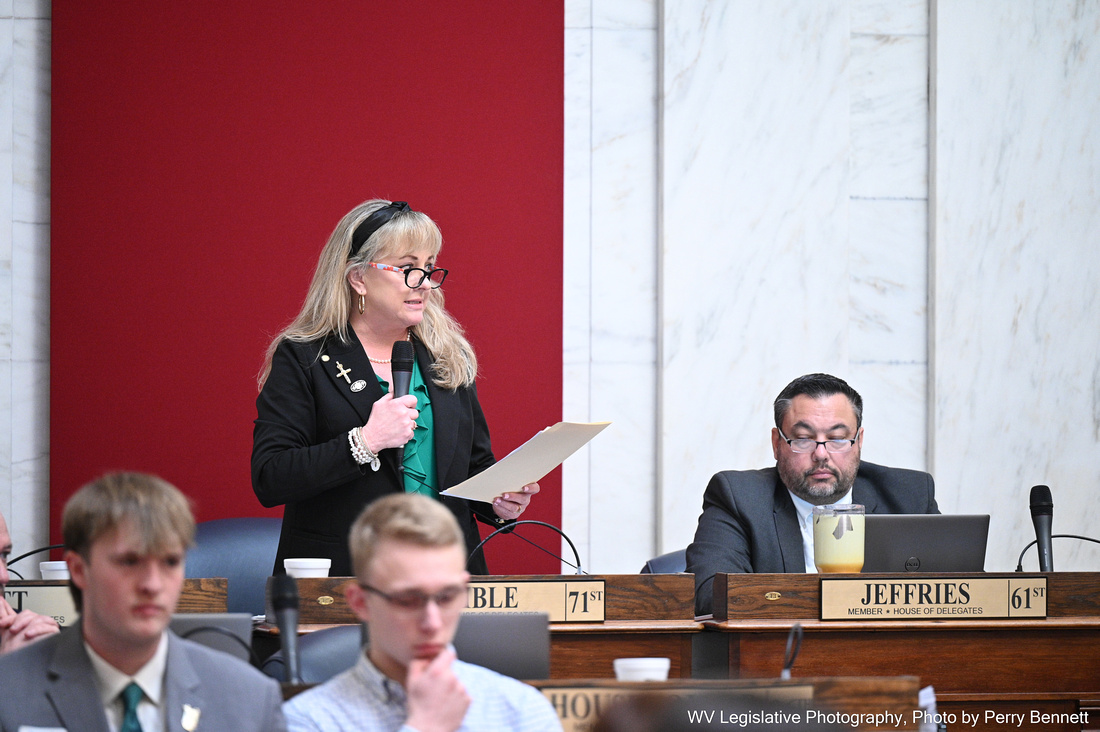Some West Virginia schools could soon have more leniency over vaccine requirements.
House Bill 5105 would remove vaccine requirements for enrolling in private, parochial or virtual public schools in West Virginia.
It would also allow parents or guardians to exempt their child from vaccination because of their religious beliefs.
The bill narrowly passed the West Virginia House of Delegates on Monday, following a vote of 57 to 41. Two lawmakers did not vote.
The bill’s initial draft only applied to students enrolled in virtual public schools, but was amended to also include students in private or parochial schools earlier this month.
Currently, students must receive vaccines for several infectious diseases — like polio, measles and hepatitis B — regardless of the type of school they attend, unless they are homeschooled or medically exempt.
Under the bill, private, parochial and virtual schools would still have the authority to impose their own vaccine requirements. But these schools would have discretion over what vaccine requirements they have in place.
Proponents of the bill described it as a matter of personal choice and religious freedom.
Del. Laura Kimble, R-Harrison, serves as lead sponsor on the bill. Kimble said she drafted the bill after learning that students must be vaccinated to enroll in virtual public school programs, which she called “absurd.”
“We live in West Virginia. We live in the United States of America. We have rights. We have the constitution,” she said. “We acknowledge that we’re guaranteed the right to religious liberty, yet our West Virginia government has attempted to infringe on this right.”
Del. Larry Kump, R-Berkeley, said he does not consider himself anti-vaccine, but that he supports the bill as a matter of personal choice.
“Why should government mandates do this?” he asked fellow lawmakers on the House floor. “This is a personal property or personal liberty and accountability bill.”
But opponents on both sides of the aisle expressed concerns that increasing leniency over vaccines would hurt public health.
Some lawmakers said the success of decades-long vaccine campaigns has removed a sense of urgency in present-day thinking around public health.
“Vaccines have erased these diseases from our memory,” said Del. Ric Griffith, D-Wayne. “We don’t see them, so they don’t happen.”
Del. Anitra Hamilton, D-Monongalia, said vaccines are an important way to curb public health emergencies.
“At the end of the day, this is about protecting not only our children, because if your children catch something, they’re going to take it home to the family,” she said. “This will allow the vaccine to spread to local communities and businesses, and we don’t have enough childcare to support the illnesses that will come,” Hamilton said.
Del. James Akers, R-Kanawha, said he saw value in the state’s current vaccine mandate, and that the bill might also be unfair to families that cannot afford public education.
“I think that we are potentially creating an equal protection problem among schools, because we’ll have a situation where if a parent can afford to send their child to a private or parochial school, then they will not have to be immunized,” he said.
Akers also said he found the bill to be too far-reaching.
“I wish this bill was just about religious exemptions. I would press green every day,” Akers said. “But this bill goes beyond that, and I believe it does pose a risk to public health I simply can’t support.”
After more than two hours of intense debate, lawmakers narrowly approved the bill just days before the deadline for a bill to pass its initial chamber. The bill will now undergo further deliberation in the West Virginia Senate.
